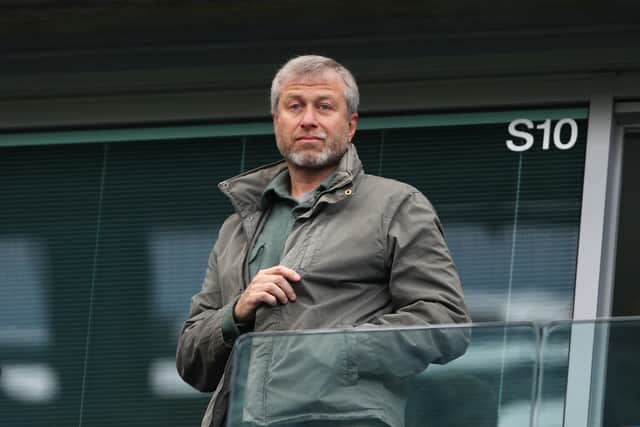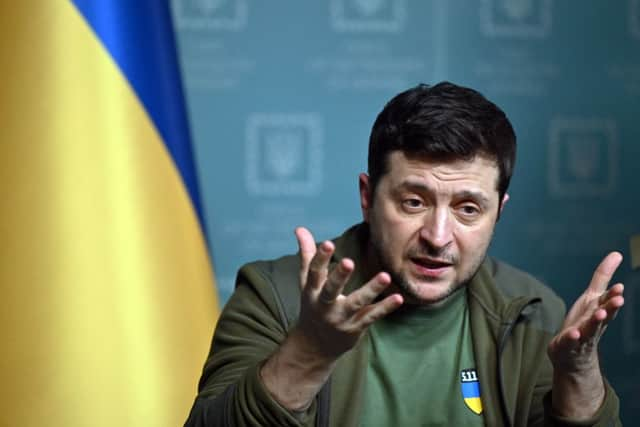Ukraine war: Chelsea owner Roman Abramovich ‘poisoned’ after Russia peace talks
and live on Freeview channel 276
Sanctioned Russian oligarch and owner of Chelsea football club Roman Abramovich has experienced “symptoms consistent with poisoning” along with Ukrainian peace negotiators.
Three delegates suffered symptoms including “red eyes, constant and painful tearing, and peeling skin on their faces and hands”, according to the Wall Street Journal (WSJ).
Advertisement
Hide AdAdvertisement
Hide AdOpen source investigators at Bellingcat say they can confirm the three victims suffered the symptoms, “including eye and skin inflammation and piercing pain in the eyes”.


It comes a month into the Russian war on Ukraine which has seen thousands killed and millions flee their homes, while harrowing reports of alleged war crimes have surfaced, including attacks on children, the bombing a maternity hospital and claims of war rape.
Talks took place between Russia and Ukraine on March 3-4, on Ukrainian territory, and Mr Abramovich attended along with “another Russian entrepreneur”, the group said.
Advertisement
Hide AdAdvertisement
Hide AdIn a tweet, a spokesperson for Bellingcat, which is based in the Netherlands and works on investigative journalism projects, said: “Bellingcat can confirm that three members of the delegation attending the peace talks between Ukraine and Russia on the night of March 3-4, 2022, experienced symptoms consistent with poisoning with chemical weapons.
“One of [the] victims was Russian entrepreneur Roman Abramovich.”


While the WSJ also said Abramovich suffered suspected poisoning along with Ukraine peace negotiators earlier this month.
Advertisement
Hide AdAdvertisement
Hide AdNegotiations on March 3 lasted until around 10pm, after which several delegates headed to a Kyiv apartment later that night, where they began experiencing symptoms, Bellingcat said.
The symptoms did not abate until the morning.
Experts have concluded the symptoms are “most likely the result of international poisoning with an undefined chemical weapon”, Bellingcat has said.
The victims consumed “only chocolate and water in the hours before the symptoms appeared” while a fourth delegate who also consumed these did not suffer symptoms.
Medics believe the poison used could have been a variant of porphyrin, organophosphates, or bicyclic substances - but they were not able to determine this conclusively.


Advertisement
Hide AdAdvertisement
Hide AdThe Bellingcat spokesperson added: “The experts said the dosage and type of toxin used was likely insufficient to cause life-threatening damage, and most likely was intended to scare the victims as opposed to cause permanent damage.
“The victims said they were not aware of who might have had an interest in an attack.”
Ukrainian president Volodymyr Zelensky who had met with Mr Abramovich was not affected.
His spokesperson told the WSJ they had no information about any suspected poisoning.
The suspected attack is reportedly being blamed on hard-liners in Moscow who they said wanted to sabotage talks to end the war, according to the WSJ.
Comment Guidelines
National World encourages reader discussion on our stories. User feedback, insights and back-and-forth exchanges add a rich layer of context to reporting. Please review our Community Guidelines before commenting.
